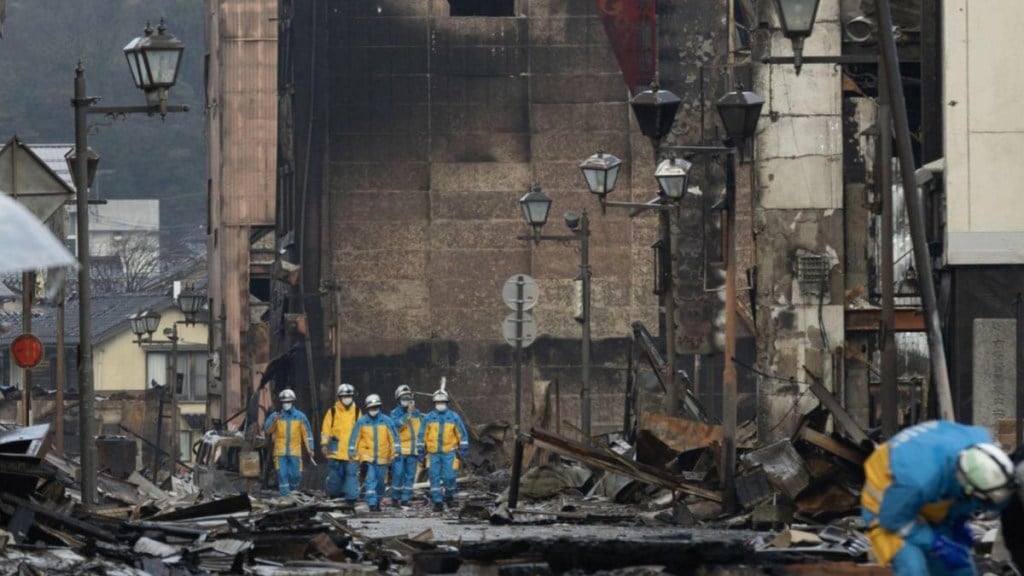Amidst the devastating aftermath of a 7.6 magnitude earthquake that struck western Japan, a glimmer of hope emerged as a woman in her 90s was miraculously rescued alive, trapped for 124 hours in the rubble of a collapsed house in Suzu city, Ishikawa Prefecture.
Rescue efforts in Suzu led to the retrieval of the woman, marking over five days since the cataclysmic quake rattled the region, claiming at least 126 lives, shattering buildings, and triggering destructive landslides.
Successful rescue operations
Nationally broadcasted news footage displayed helmeted rescue workers shielding the area with blue plastic, where the resilient survivor was eventually freed. The woman showcased an incredible story of endurance amid the disaster’s aftermath.
The successful rescue, well beyond the usual 72-hour survival window, defied the odds as chances for survival significantly diminish after this critical timeframe. Multiple other dramatic rescues unfolded in recent days as a unified effort involving soldiers, firefighters, and civilians intensified across affected areas.
Tragically, among the deceased was a 5-year-old boy whose condition deteriorated on Friday, succumbing to injuries sustained from scalding water during the initial earthquake.
The temblors have devastated Wajima city, recording the highest death toll of 69, followed by Suzu with 38 fatalities. Over 500 individuals suffered injuries, with at least 27 in critical condition.
Aftermath of the disaster
The catastrophe left roads cracked and warped, buildings reduced to rubble, and communities obliterated. A looming threat persists as aftershocks pose the risk of further destruction, particularly with precipitation anticipated overnight and on Sunday, raising concerns of additional landslides and road blockages.
Rescue operations are ongoing for the more than 200 people reported missing, with eleven individuals trapped beneath collapsed homes in Anamizu.
As Japan grapples with the calamity, water shortages persist, and power gradually returns along the coastline. Emergency supplies of water, food, and medicine are being mobilized to over 30,000 evacuees housed in temporary shelters.
While neighboring countries and allies, including North Korea, extended messages of condolence and aid promises, Japan continues to face significant challenges in restoring critical infrastructure and ensuring essential supplies reach affected communities.
(With inputs from Associated Press)

